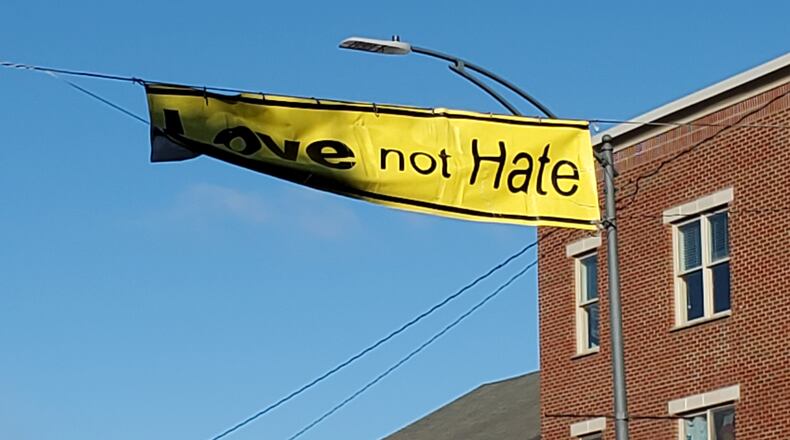There’s one important adjective there — reported. Who knows how many unreported incidents of bullying, threats, and verbal abuse happen on a daily basis? And there’s more. Eight of 10 Americans called hate incidents “very or somewhat” prevalent in the country. Six in 10 feel hate is getting worse.
Arthur Jipson of the University of Dayton helped me understand hate can be complicated, with its seemingly worsening state tied to how we interact with one another.
“We’ve entered an era in which a great deal of emphasis is put on agreement,” Jipson, an associate professor of sociology. “There’s a huge difference between disagreement and hatred,” a distinction he says is lost on too many of us.
Here’s how disagreement manifests itself into hate. In our siloed culture, we tend to interact, either in person or online, with people who hold the same values that we do. Anyone with different views gets held in contempt, and that contempt can lead to hateful feelings over time as we lose a meaningful connection with one another that fosters empathy and understanding.
That animosity leads to hate.
“The nature of hatred, disagreement or disparagement (is) seeing the others as dangerous or negative, something that must be stopped. I think of this as messaging the perpetual crisis,” Jipson said.
We’re used to, as a society, racial hatred, but even that trend’s expanding. We have Blacks attacking Asians and White suburbanites attacking other Whites based on school policies and other social issues. It’s like it’s open season for hate.
“It’s really interesting that so much of political conversation or cultural conversation these days comes down to some sense of superiority-inferiority, some sense of love-hate,” Jipson said. “I can remember growing up in a time period where I would read a lot of things I didn’t agree with, and I didn’t feel the need to respond to them. Now if you really wanted fear for the future of humanity, you look at the comment sections.”
Jipson drew another parallel involving racist and extremist groups, which he studies.
“We don’t join the group because we disagree with their belief system,” Jipson said. “Many hate groups create views of the world where they see themselves as superior.” However when Jipson conducts interviews with people who are in an extremist group they say: “I just want to be around like-minded people who believe in think and feel the way I do.” They fail to understand that difference is a strength, not a weakness.
People who disagree with each other to the point of hatred would bristle about being linked to extremists. That’s not the point here. We all want to be with people who think like us. The issue is, how do we behave when they don’t agree?
“We find it hard to put ourselves in other people’s shoes; we find it hard to take the role of the other,” Jipson noted. “The golden rule, not judging someone, those statements really have some deep meaningful ideas about the kind of community we want to live in.”
Jipson has some excellent thoughts about what makes a good community, but that’s for another column. For now, we all have to grapple with a central question:
Why do we hate?
Hate impacts everything. Your relationship with your neighbors. The values you impart on your children. The ability to affect change; being obnoxious doesn’t inspire camaraderie. It is true that your small group sees the world as you do but that doesn’t mean it’s the right way to coexist in a robust community.
We all don’t have to agree; if we did that would make a boring life. But we have to figure out how to stop the nonsense and regain the ability to have a rational conversation for the good of us all.
“I’ve got a sign behind me,” Jipson said. “‘If you can be anything, be kind.’ I really believe that that’s struggle for all of us today.”
It’s a struggle worth fighting and winning.
Ray Marcano is a longtime journalist whose column appears on these pages each Sunday. He an be reached at raymarcanoddn@gmail.com

